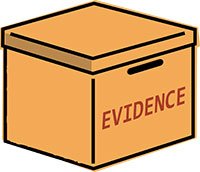Premise 1100 Words You Need
Premise 1100 Words You Need
/ˈprem.ɪs/ (noun & verb)
the core of an argument, basis of argument, central idea, a proposition that yields the basis of an argument, ground, basis, foundation, evidence, proposition, supposition, hypothesis, assumption, theory, assertion, presupposition, thesis. (verb): to base something on the foundation of an argument or statement, suppose, assume, assert, presuppose, presume:
The scientific study of leadership began with a focus on the traits of effective leaders. The basic premise behind trait theory was that effective leaders are born, not made, thus the name sometimes applied to early versions of this idea, the “great man” theory. Many leadership studies based on this theoretical framework were conducted in the 1930s, 1940s, and 1950s.
Partially as a result of the disenchantment with the trait approach to leadership that occurred by the beginning of the 1950s, the focus of leadership research shifted away from leader traits to leader behaviors. The premise of this stream of research was that the behaviors exhibited by leaders are more important than their physical, mental, or emotional traits.
Source: https://www.referenceforbusiness.com/
Understandings of restorative justice are based on the premise that crime causes harm to people, to relationships and to the community; that it is not simply committed against the state (Strang 2001). Restorative justice represents a departure from the principles upon which the traditional criminal justice approach is based as it puts reparation of harm at the fore rather than punishment.
Source: https://aic.gov.au/
French: prémisse
Farsi: فرضیه
